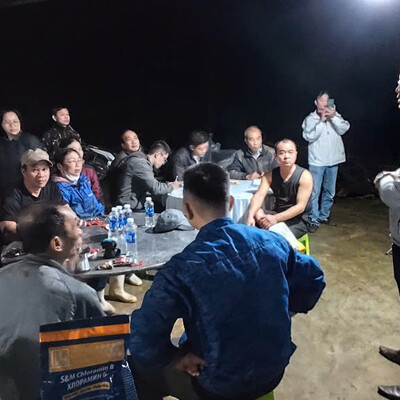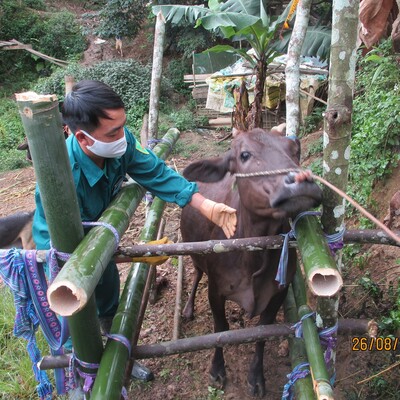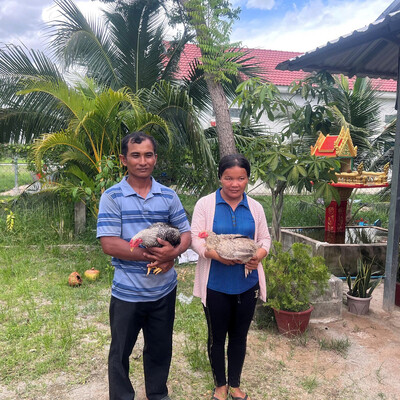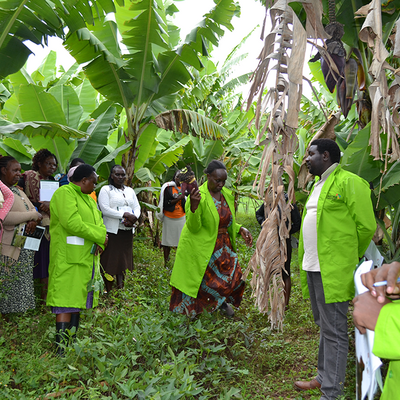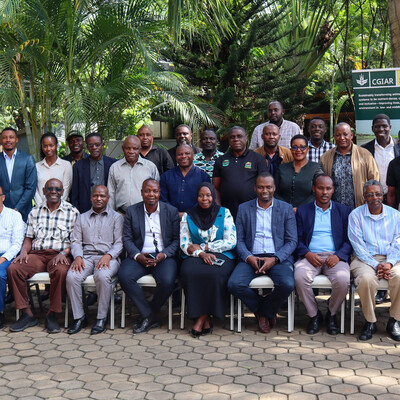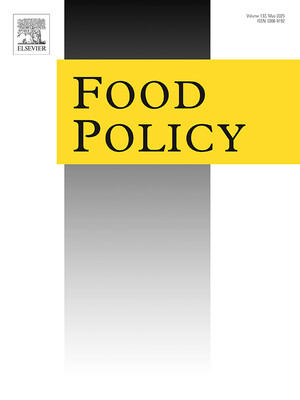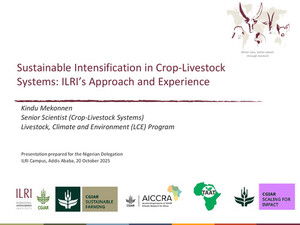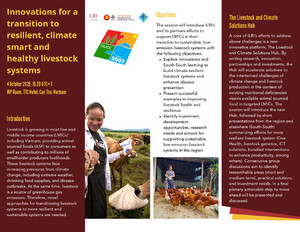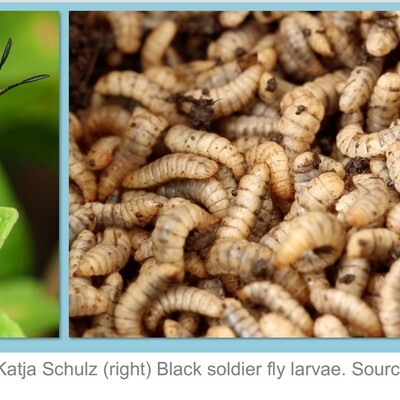
Unlocking the potential of India’s livestock sector through digital and financial services
Unlocking the potential of India’s livestock sector through digital and financial services
A workshop focussing on opportunities and gaps in digital financial services and inclusion in India’s livestock sector was held in New Delhi from 31 August to 1 September 2023. Hosted by the International Livestock Research Institute (ILRI), through the OneCGIAR initiatives on Digital Innovation and Livestock and Climate, it brought together private, public, and developmental organizations, as well as donors. The goal was to unlock the full potential of the Indian livestock sector, especially for marginal farmers and livestock keepers, who depend on it for their assets and livelihoods.
Habibar Rahman, the ILRI regional representative for South Asia, highlighted the global significance of the livestock sector, which is valued at USD 2.34 trillion. Notably, more than 1.35 billion livestock owners, two-thirds of them being women, live in the Global South. However, the livestock sector in these countries faces numerous challenges, including diseases, droughts, floods, and volatile market prices, negatively affecting the livelihoods and resources of livestock keepers and herders.
Anthony Whitbread, the leader of the Sustainable Livestock Systems Program at ILRI, discussed the institute’s work in livestock sector development in 16 countries. He emphasized the importance of livestock in poverty alleviation, particularly through milk and pork trade in South Asian and African countries.
‘Nearly 75% of animals originate from marginal and unorganized sectors, making them vulnerable to climate-related challenges,’ Whitbread pointed out. ‘Digitalization, through smart climate agriculture, can help farmers and livestock keepers mitigate these risks, with innovations providing weather forecasts and advisory services.’
Abhijit Mitra, the animal husbandry commissioner (AHC) at the Department of Animal Husbandry and Dairying (DAHD), India, shed light on ILRI's role in livestock development and the challenges faced. He noted that accessibility issues and lack of awareness had hindered the adoption of livestock insurance. Mitra also discussed the introduction of a ‘Pashu Adhar’ card to capture essential animal information, including artificial insemination and vaccination status.
The AHC emphasized the need for comprehensive data on antibiotic use in livestock and its potential use in disease reporting, surveillance, and laboratory networks: ‘Data analysis, disease forecasting, and risk assessment are essential components of this initiative in which the Indian Council of Agricultural Research (ICAR) is playing a pivotal role. Digital interventions are crucial in preventing the spread of transboundary diseases.’
Dignitaries at the Dias (photo credit: ILRI/South Asia)
Himanshu Pathak, secretary of the Department of Agricultural Research and Education (DARE) and Director General of the Indian Council of Agriculture Research (ICAR), underscored the increasing importance of livestock in India's food basket and the necessity for digital and financial strategies to support its growth. Highlighting the data collected by the 76 All India Co-ordinated Research Projects, he called for a stronger modelling approach in the livestock sector, emphasizing the importance of forecasting and forewarning capabilities.
The workshop focussing on livestock data, climate information services and digital financial services highlighted some key points :
1. Livestock data accessibility: Availability and accessibility of livestock data is key to building risk reduction interventions for livestock systems but there is a dearth of high-quality livestock data. Data must be generated on India’s large livestock resources, especially focusing on livestock insurance and fodder value chains. This can be done using digital tools and innovations. There is also a need to address issues around ownership of the data already collected (especially by research institutions and private institutions) for easy access and sharing among different users.
2. Climate-smart livestock management: Biometeorological services are crucial to understanding the impact of climate change on livestock and greenhouse gas emissions, while also identifying adaptation and mitigation strategies. Climate affects livestock in many ways—feed and fodder (quality, availability and price), diseases (incidence, severity and distribution) and physiological responses (heat stress). Livestock management practices or tactical measures and decisions related to those are helped with agro-meteorological advisory services, whose role become critical especially due to increasing climate variability.
3. Digital and financial services in the livestock sector: There is a need to create and deliver demand-driven digital and financial services in India’s livestock sector. This calls for a multidimensional approach that includes technology, finance, education, policy and community engagement.
Group photo taken during the workshop (photo credit: ILRI/South Asia)
As a way forward, the workshop provided a roadmap for strengthening digital information services in the Indian livestock sector while identifying potential research topics and opportunities outlining entry points in terms of geographies, partner institutions and ideas of intervention related to digital financial services, climate information services and data. The aspiration is that the evidence generated from such research will be utilized by India’s Ministry of Fisheries, Animal Husbandry and Dairying and ILRI for influencing policy decisions for resilient livestock systems in South Asia.
The full workshop report can be found at: https://www.cgiar.org/news-events/event/digital-and-financial-services-in-the-livestock-sector-in-india-opportunities-and-challenges/
(The post was edited by Terry Mwenda, communications officer, publishing and editing, ILRI, and Paul Karaimu, communications officer, ILRI)






